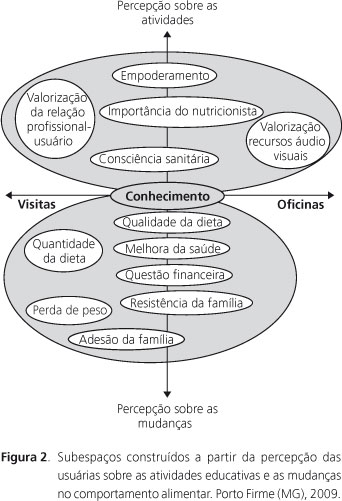OBJECTIVE: This study assessed the limitations of two educational strategies and their efficacy in increasing adherence to hypertension treatment. METHODS: This interventional case study of qualitative and quantitative nature included 27 hypertensive women aged 45 to 60 years, and lasted four months. The women were enrolled in the Family Health Program of Porto Firme, Minas Gerais. Two diet education interventions to reduce blood pressure were compared: one consisted of classes given at the primary healthcare unit, and the other, of classes given at the primary health care unit plus home visits. Data were collected though focus groups and individual interviews. Body weigh, body mass index, waist circumference, blood pressure, blood glucose and food intake were determined before and after the intervention to investigate possible association with adherence. The data were then submitted to content analysis and descriptive statistics. The variables collected before and after the intervention were compared with the non-parametric Wilcoxon and Mann Whitney tests. RESULTS: The two educational strategies promoted adherence to appropriate food habits and improved the women's perception of hypertension-related problems. CONCLUSION: Home visits proved to be important for promoting good hygiene practices and getting the family members involved in the therapeutic process, encouraging patients' adherence to hypertension treatment.
Health education; Hypertension; Nutrition; Family health





